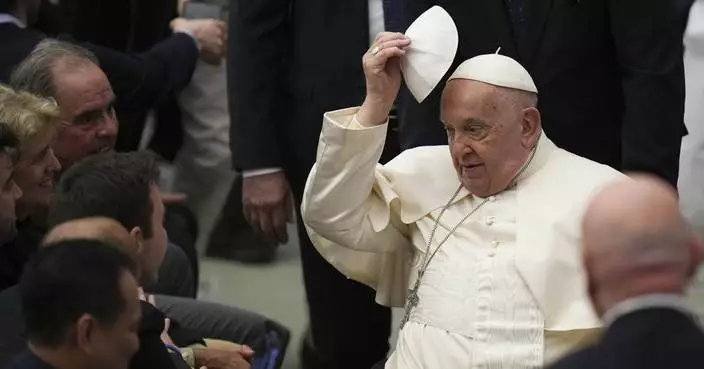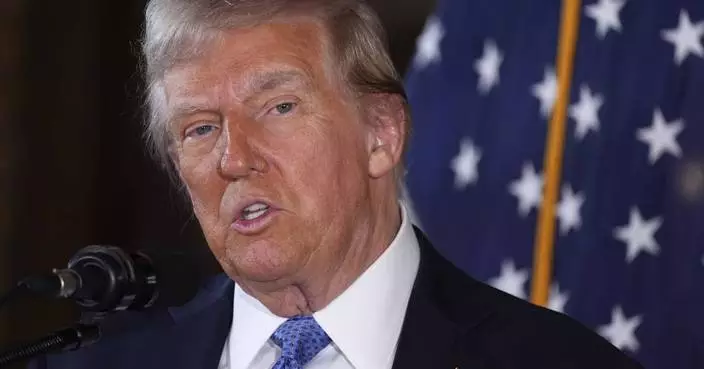WASHINGTON (AP) — With characteristic bravado, Donald Trump has vowed that if voters return him to the White House, “inflation will vanish completely."
It’s a message tailored for Americans who are still exasperated by the jump in consumer prices that began 3 1/2 years ago.
Yet most mainstream economists say Trump’s policy proposals wouldn't vanquish inflation. They’d make it worse. They warn that his plans to impose huge tariffs on imported goods, deport millions of migrant workers and demand a voice in the Federal Reserve's interest rate policies would likely send prices surging.
Sixteen Nobel Prize-winning economists signed a letter in June expressing fear that Trump's proposals would “reignite’’ inflation, which has plummeted since peaking at 9.1% in 2022 and is nearly back to the Fed’s 2% target.
Last month, the Peterson Institute for International Economics predicted that Trump’s policies would drive consumer prices sharply higher two years into his second term. Peterson's analysis concluded that inflation, which would otherwise register 1.9% in 2026, would instead jump to between 6% and 9.3% if Trump's economic proposals were adopted.
Many economists aren’t thrilled with Vice President Kamala Harris’ economic agenda, either. They dismiss, for example, her proposal to combat price gouging as an ineffective tool against high grocery prices. But they don’t regard her policies as particularly inflationary.
Moody’s Analytics has estimated that Harris' policies would leave the inflation outlook virtually unchanged, even if she enjoyed a Democratic majority in both chambers of Congress. An unfettered Trump, by contrast, would leave prices higher by 1.1 percentage points in 2025 and 0.8 percentage points in 2026.
Taxes on imports — tariffs — are Trump’s go-to economic policy. He argues that tariffs protect American factory jobs from foreign competition and deliver a host of other benefits.
While in office, Trump started a trade war with China, imposing high tariffs on most Chinese goods. He also raised import taxes on foreign steel and aluminum, washing machines and solar panels. He has grander plans for a second term: Trump wants to impose a 60% tariff on all Chinese goods and a “universal’’ tariff of 10% or 20% on everything else that enters the United States.
Trump insists that the cost of taxing imported goods is absorbed by the foreign countries. The truth is that U.S. importers pay the tariff — and then typically pass along that cost to consumers in the form of higher prices. Americans themselves end up bearing the cost.
Kimberly Clausing and Mary Lovely of the Peterson Institute have calculated that Trump’s proposed 60% tax on Chinese imports and his high-end 20% tariff on everything else would, in combination, impose an after-tax loss on a typical American household of $2,600 a year.
The Trump campaign notes that U.S. inflation remained low even as Trump aggressively imposed tariffs as president.
But Mark Zandi, chief economist at Moody’s Analytics, said that the magnitude of Trump’s current tariff proposals has vastly changed the calculations. “The Trump tariffs in 2018-19 didn’t have as large an impact as the tariffs were only just over $300 billion in mostly Chinese imports,’’ he said. “The former president is now talking about tariffs on over $3 trillion in imported goods.''
And the inflationary backdrop was different during Trump’s first term when the Fed worried that inflation was too low, not too high.
Trump, who has invoked incendiary rhetoric about immigrants, has promised the “largest deportation operation'' in U.S. history.
Many economists say the increased immigration over the past couple years helped tame inflation while avoiding a recession.
The surge in foreign-born workers has made it easier for fill vacancies. That helps cool inflation by easing the pressure on employers to sharply raise pay and to pass on their higher labor costs by increasing prices.
Net immigration — arrivals minus departures — reached 3.3 million in 2023, more than triple what the government had expected. Employers needed the new arrivals. As the economy roared back from pandemic lockdowns, companies struggled to hire enough workers to keep up with customer orders.
Immigrants filled the gap. Over the past four years, the number of people in the United States who either have a job or are looking for one rose by nearly 8.5 million. Roughly 72% of them were foreign born.
Wendy Edelberg and Tara Watson of the Brookings Institution found that by raising the supply of workers, the influx of immigrants allowed the United States to generate jobs without overheating the economy.
In the past, economists estimated that America’s employers could add no more than 100,000 jobs a month without igniting inflation. But when Edelberg and Watson factored in the immigration surge, they found that monthly job growth could reach 160,000 to 200,000 without exerting upward pressure on prices.
Trump's mass deportations, if carried out, would change everything. The Peterson Institute calculates that the U.S. inflation rate would be 3.5 percentage points higher in 2026 if Trump managed to deport all 8.3 million undocumented immigrant workers thought to be working in the United States.
Trump alarmed many economists in August by saying he would seek to have “a say” in the Fed’s interest rate decisions.
The Fed is the government’s chief inflation-fighter. It attacks high inflation by raising interest rates to restrain borrowing and spending, slow the economy and cool the rate of price increases.
Economic research has found that the Fed and other central banks can properly manage inflation only if they're kept independent of political pressure. That’s because raising rates can cause economic pain — perhaps a recession — so it's anathema to politicians seeking reelection.
As president, Trump frequently hounded Jerome Powell, the Fed chair he had chosen, to lower rates to try to juice the economy. For many economists, Trump's public pressure on Powell exceeded even the attempts that Presidents Lyndon Johnson and Richard Nixon made to push previous Fed chairs to keep rates low — moves that were widely blamed for helping spur the chronic inflation of the late 1960s and ’70s.
The Peterson Institute report found that upending the Fed's independence would increase inflation by 2 percentage points a year.
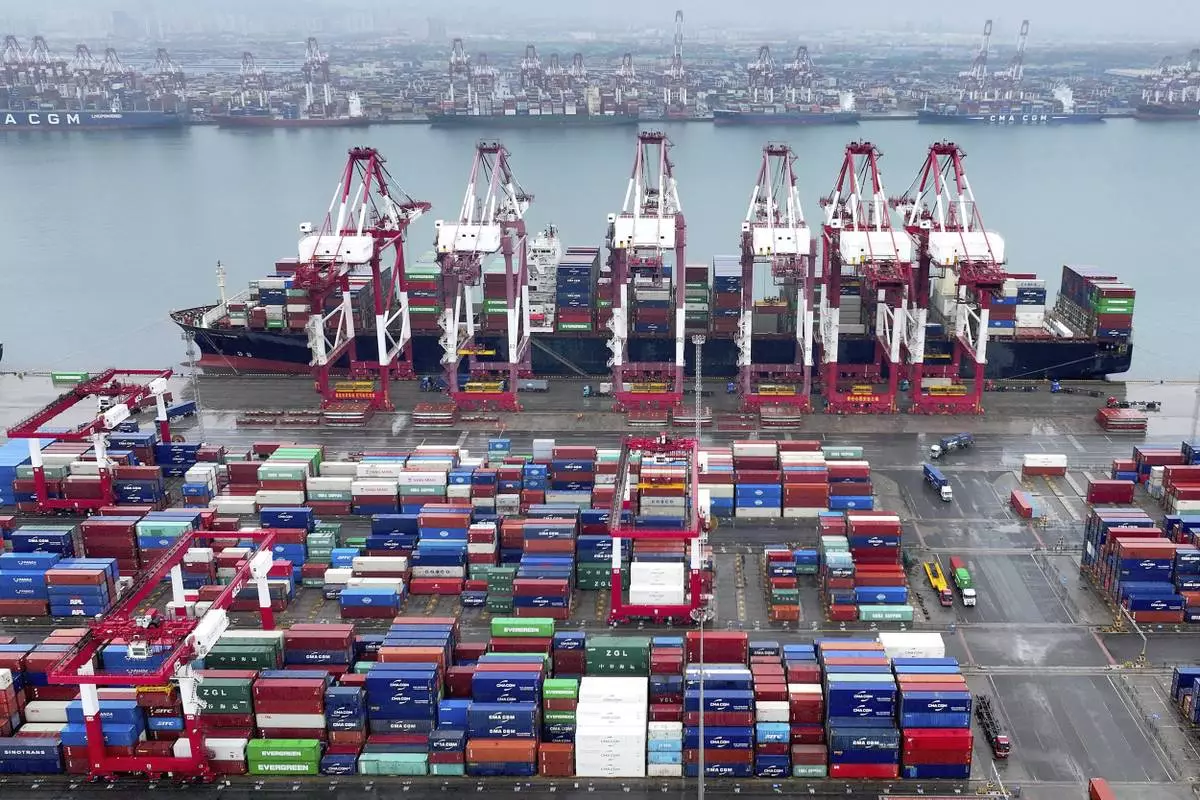
FILE - Cranes and transporters work at an automated container port in Qingdao in eastern China's Shandong province on July 7, 2024. (Chinatopix Via AP, File)

FILE - Freshly picked bananas float in a sorting pool as they are readied for packing and export at a farm in Ciudad Hidalgo, Chiapas state, Mexico on May 31 2019. (AP Photo/Marco Ugarte, File)

FILE - A member of the Texas delegation holds a sign during the Republican National Convention on July 17, 2024, in Milwaukee. (AP Photo/Matt Rourke, File)

FILE - An array of solar panels float on top of a water storage pond in Sayreville, N.J., April 10, 2023. (AP Photo/Seth Wenig, File)
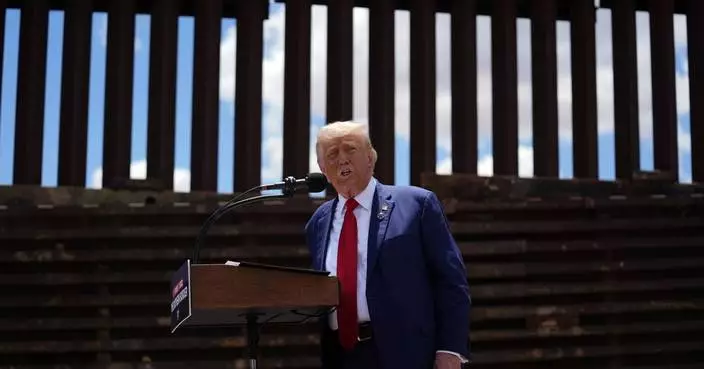
Trump's economic plans would worsen inflation, experts say

Trump's economic plans would worsen inflation, experts say
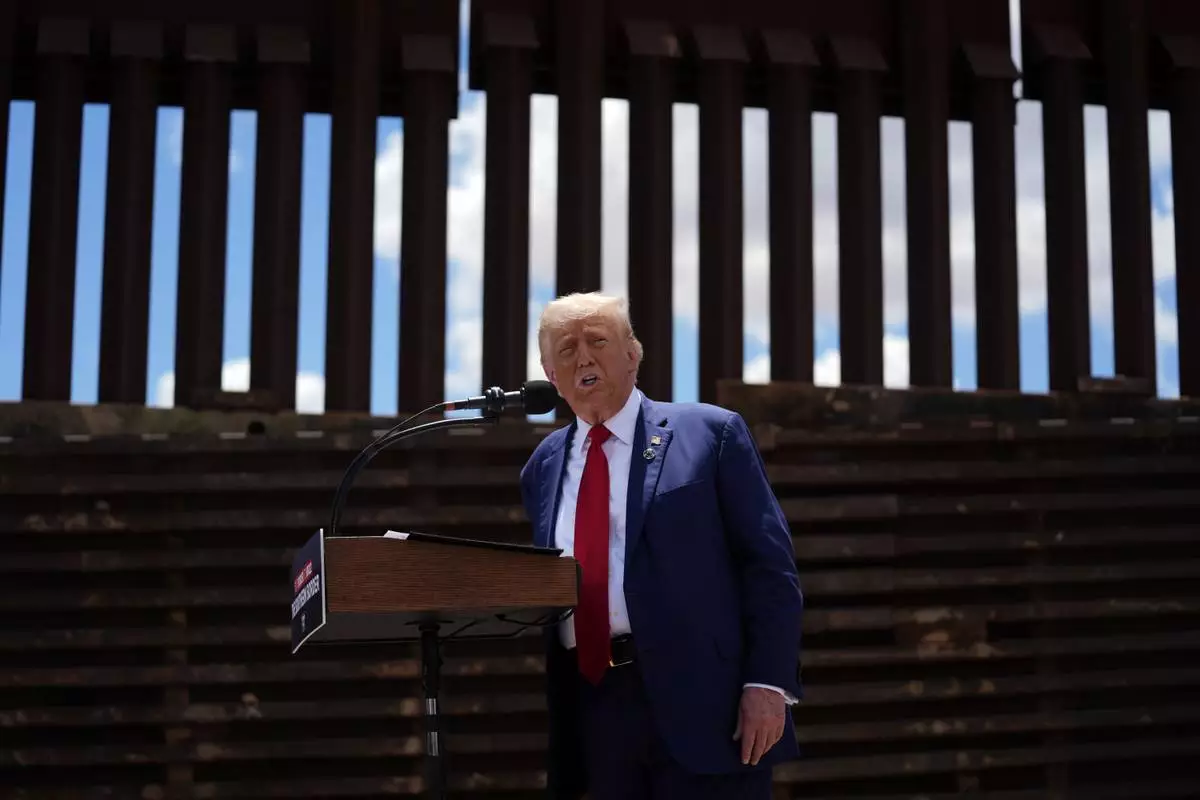
FILE - Republican presidential nominee former President Donald Trump speaks along the southern border with Mexico, on Aug. 22, 2024, in Sierra Vista, Ariz. (AP Photo/Evan Vucci, File)















